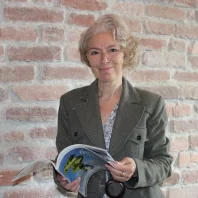In August 2019, we met Borislav Popov, Head of Strategic Development Individual Banking Division at Postbank, to discuss the value of MBA loans for professionals interested in global business education.

Iliana Bobova
About Iliana
Profession: Head of Content, Advent Group
Years experience: 15
Education: HR Management & Development, Social Pedagogy, English Language, Literature and Teaching English as a Foreign Language (TEFL).
Certification: Harvard University, EAIE, IIE, NAFSA, GCDF
Get in touch: i.bobova@adventgroup.net
Iliana Bobova is a seasoned international education and career coach, and a former Executive MBA recruiter and admissions officer. Since 2010, she has been advising and coaching prospective MBA and Master’s students globally during the Masters, MBA and EMBA events and on Advent Group’s online event and school selection platforms. She has also been the Chief Editor of the annual Access Masters, MBA & EMBA Guide for over 10 years.
Iliana has gained in-depth professional expertise in trainings by Harvard University, the International Association of International Education (EAIE), the Institute of International Education (IIE), NAFSA: Association of International Educators, Global Career Development Facilitator (GCDF), and Randstad RiseSmart, among others. Her academic background is in HR Management & Development, Social Pedagogy, English Language, Literature and Teaching English as a Foreign Language (TEFL).
Authored articles
The internationally recognized aptitude test GRE is making new strides towards objectively assessing the potential for academic success of prospective graduate students in various fields.
Your best TOEFL score for graduate school application can be calculated in two ways. Both of them are to your advantage, but even though the actual score is the same, their interpretation may differ. Here is what you should know in order to plan your TOEFL preparation and test taking strategy.
Learn more about the GMAT Verbal section in this official GMAC video. The Verbal, along with the Quant section, forms the core GMAT score, which ranges between 200 and 800 and that business schools quote in their admissions requirements.
Calculating your exam budget is certainly an essential part of your GMAT prep. Are you sure what is actually covered by the test fee? How can unforeseen circumstances affect your GMAT test expenses and what can you do to reduce them? Planning the cost of the actual test taking, without the preparation itself, is certainly step one.
This week, we suggest that you get to know the GMAT Integrated Reasoning section in an official GMAC video.
The GMAT Analytical Writing Assessment (AWA) part is one of the sections which you will face on the exam. This is a 30-minute written work a.k.a. the “GMAT essay”. Learn what it is all about in this official GMAC video.
A letter of motivation is part of the Master’s application package for many international graduate school programs. Admissions committees pay a lot of attention to what applicants have shared in their Master’s application letter of motivation, in addition to the facts and figures revealed by their CV/resume, test scores, letters of recommendation, and academic transcripts.
Learn more about the GMAT Quantitative section in this official GMAC video. The "Quant", along with the Verbal section, forms the core GMAT score, which may be between 200 and 800 and that business schools quote in their admission requirements.
More than 50% of applicants to the top 10 MBA programs globally hire an admissions consultant to make sure they really maximize their chance of admission.
School fit is all about making sure you apply to MBA programs that meet your specific needs, goals, and personality. The school research process enables you to build a focused and convincing application for admission. But how can you make the most of step one – school selection?
Business school applicants have a lot to do when it comes to preparing MBA recommendations, even though essays and admissions tests might seem like a bigger hassle.
